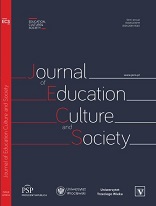The Language of Crisis and the Problem of Historical Meaning. Nietzsche, Heidegger, Kolakowski
The Language of Crisis and the Problem of Historical Meaning. Nietzsche, Heidegger, Kolakowski
Author(s): Gabriel PopaSubject(s): History of ideas, Contemporary Philosophy
Published by: Fundacja Pro Scientia Publica
Keywords: crisis; history; relativism; Kolakowski; Nietzsche;Heidegger;
Summary/Abstract: The main task of our paper is to emphasize the relationship between the dominant historical paradigm which emerges at the end of the 19th Century and the contemporary embrace of crisis language. We will see that the dawn of the historical school and of historicism in general brings forth the dissolution of the last remains of the Absolute figures, thus leaving us in front of desolation and emptiness. Post-modern skepticism and relativism became the dominant features that shape our intellectual and moral landscape, trapping us within a seemingly inescapable situation of crisis which finds its own language and expressions. Our journey will trace back to the origins and main motivations of what has been described as a constancy of the post-modern condition as it is described by Kolakowski in one of his essays from 1989, finding along our way writers like Heidegger and Nietzsche which we think are our best witnesses of the main variations of the relation between the meaning of history and the crisis-consciousness.
Journal: The Journal of Education, Culture, and Society
- Issue Year: 6/2015
- Issue No: 2
- Page Range: 110-121
- Page Count: 12
- Language: English

